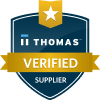When you’re looking to add a new product offering under your brand, there are several logistical considerations to make on how to bring it to market. You must assess your company’s ability to handle research and product development, procurement, manufacturing, packaging, and more. Does your business have the expertise, manpower, and specialized equipment resources to do the job? If not, do you have the budget to acquire the new technology and train staff to use it?
Introducing a new item to your product line can be costly and time-consuming. Outsourcing product sourcing and production-related tasks to a private labeling company instead gives you immediate access to a larger supply chain network with a manufacturer for which producing this product is already a core competency.
What Is a Private Label?
Consumers may assume that a company’s product is self-manufactured. A private label product sells under your own brand, but a third-party manufacturer, one that already has that existing product or capabilities to custom-produce it for you, is responsible for production.
By partnering with a private labeling manufacturer to generate their goods under your brand name, you can take advantage of their skilled labor, proven manufacturing processes, and specialized equipment without needing to invest in such things yourself. This common practice is advantageous not just for large corporations or brands that already have high recognition in their market but also for startups or smaller companies. These might be looking to try out a new business venture or expand their product line quickly and cost-effectively.
How Does Private Labeling Work?
Once you’ve determined the product you want to add to your line and its intended market, the first step is researching and finding the appropriate private label manufacturer for your business. You’ll want one with experience working on goods for your market sector, and one with a reputation for quality and open communication.
Before full-scale production, first order some samples of your product. Doing so will allow you to review and potentially tweak it as necessary, offering feedback to the manufacturer. Once you’ve finalized all production details, manufacturing can begin.
To attribute their product to your business, the private labeling company will use your brand name on the product packaging. You’ll then sell and market these goods as your product under your brand, either independently or alongside other products. While the manufacturer isn’t the one to get recognition for production, they instead benefit from increased sales for a mutually beneficial business arrangement.
The Private Label Advantage
There are numerous benefits to private labeling, including:
- Optimal control. Even though you’re not manufacturing the product yourself, private labeling allows you some control over product specifications, parts or materials, and even your whole supply chain. By managing the cost of production, you can ensure cost-effectiveness and profitable pricing.
- Exclusivity. Often, you alone have the right to sell your particular private label product, thus enabling you to stand out amongst the competition. Limited product accessibility for consumers can also increase sales across your business as your base will be more likely to do their shopping with you.
- Brand loyalty. Beyond simply selling your product, you want to foster customer loyalty. Using effective marketing and private labeling as a branding strategy successfully achieves this goal. It connects your product with a target audience of customers who already love your products and are more likely to purchase items from your line.
- Flexibility. Using private label manufacturing allows your company to be more agile, rapidly adapting to changes in market conditions and consumer purchasing patterns.
- High profit margins. With R&D already done, private label brands typically have an impressive profit margin compared with resale goods. Also, as the manufacturer takes care of the production, you can focus on marketing and your core business.
- Options for wholesale. Should you decide to get into wholesale operations, you can grant other retailers limited access to your product line. This not only increases exposure for your brand but provides additional income from retailers willing to pay a premium to carry your products.
Why AMS?
At Applied Material Solutions, Inc., we manufacture a wide variety of specialty chemical products available for private labeling, including defoamers, antifoams, and colloidal and hydrophobic silicas. Our facilities are equipped with storage and blend tanks, hot oil and steam reactors, and milling, shearing, and laboratory support equipment for producing high-quality chemicals. AMS is ISO- and GFSI-certified, utilizing best-in-class technology to provide clients in diverse industries with successful private labeling solutions and much more. Contact us today for information on our capabilities and available products.



Comments are closed